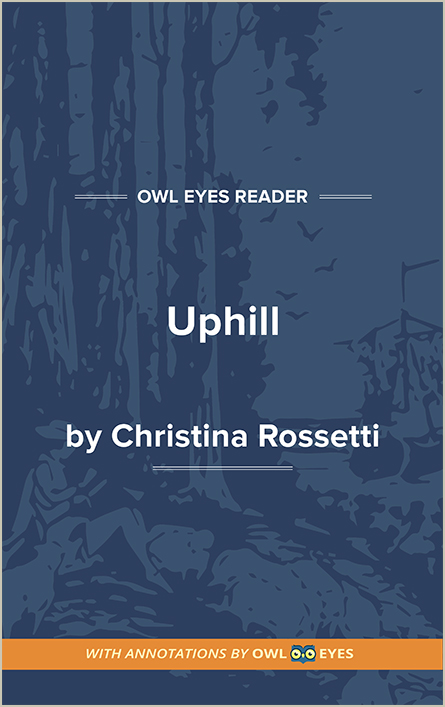Analysis Pages
Metaphor in Uphill
Metaphor Examples in Uphill:
Text of the Poem
🔒"wayfarers..." See in text (Text of the Poem)
"the darkness hide it..." See in text (Text of the Poem)
"the slow dark hours begin...." See in text (Text of the Poem)
"the day's journey..." See in text (Text of the Poem)
"road wind uphill..." See in text (Text of the Poem)

